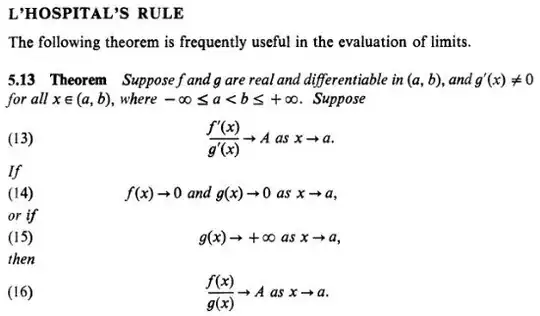L.Hopital rule can be used to find the limits of the form
$\lim_{x \to a} \dfrac{f(x)}{g(x)}$ when $\lim_{x \to a}f(x)=\lim_{x \to a}g(x)=\infty$
Today I saw page claiming that $\lim_{x \to a} f(x)=\infty$ is not necessary (When $\lim _{x \to a}g(x)=\infty$) . Is it true? Can it be proved that this condition isn't necessary.
Edit: To clarify, I am solving a limit problem with L.Hopital where $f(x)\neq \infty$[This doesn't prove it, I am trying to clear what I am trying to ask]
$\lim_{x \to \infty}\dfrac{1}{x^2}$ (as $\lim_{x \to \infty} x^2 =\infty$, limit of numerator need not ne $\infty$)
Applying L.Hopital once:
$\implies\dfrac{0}{2x}$ (as $\lim_{x \to \infty}2x=\infty$,limit of numerator need not ne $\infty$)
Applying L.Hopital again:
$\implies \dfrac{0}{2}=0$
Edit:
